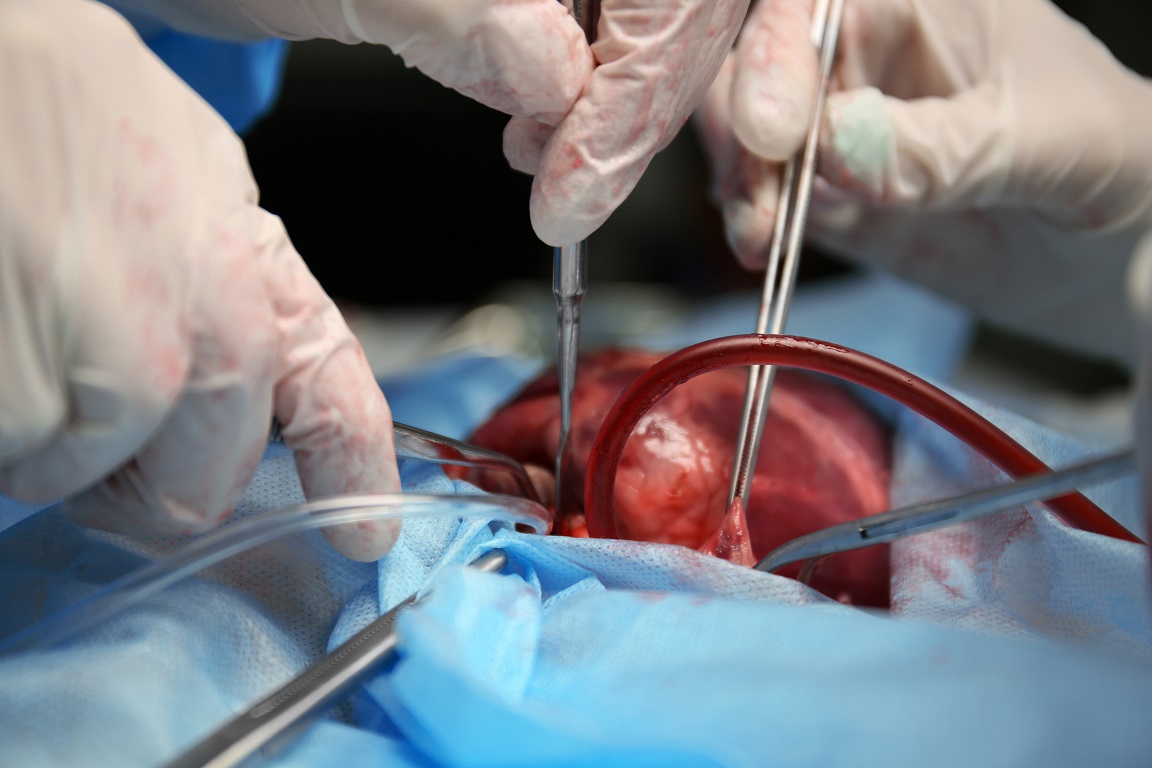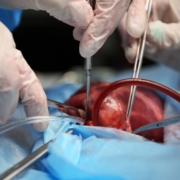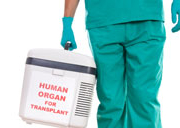U.S. surgeons successfully test pig kidney transplant in human patient
 So ran the headline of an article in Reuters’ ‘Healthcare and Pharmaceuticals’ category late last month. It was accompanied by a video in which the surgeon who carried out the transplant curiously remarked that the significance of this operation ‘could not be understated’ (sic).
So ran the headline of an article in Reuters’ ‘Healthcare and Pharmaceuticals’ category late last month. It was accompanied by a video in which the surgeon who carried out the transplant curiously remarked that the significance of this operation ‘could not be understated’ (sic).
Well, that may be so, but what was done could certainly have been more accurately stated in the headline. The human patient had actually been diagnosed as brain dead prior to the procedure and her cardiac and other organ function had been maintained by ventilating her in order for the experimental procedure to be carried out.
The patient had renal failure and surgeons connected her circulation post-mortem with a kidney from a pig, which had been genetically modified to prevent it from eliciting an immediate immune reaction. For three days the kidney functioned well and the blood creatinine fell to normal levels before the kidney was disconnected.
As a proof of principle procedure to show that xenotransplantation might be possible without precipitating a hyperacute immune rejection, this is certainly a major advance. However, successful xenotransplants have been long-promised and immediate rejection is only one practical hurdle to be overcome, whereas ethical issues abound.
As with another major gene-editing breakthrough announced to the public through the press rather than through peer review, there are many details of the case we simply do not know. These include the histological appearance of the kidney after the trial, whether any immunosuppressive treatment was given (if so, the presentation of the case is highly misleading), how long kidney function might be maintained, and why the trial was halted after such a short time when presumably it could have been extended to see if the creatinine levels began to rise again and when.
Another unknown of course from such a short trial is whether the ever-present risk of xenogenic infection transmission may occur or not. Though transgenic pigs may not induce rejection, they can certainly cause serious infections, though current thinking is that the risk of transmission from xenografts is lower than that from human allografts. Nevertheless, the theoretical risk of infection is one reason why the transgenic pigs are reared in isolation in sterile conditions. Furthermore, they are killed at around six months old as this is the age at which their organs are of a suitable size for transplantation into humans. Since the lifespan of a domestic pig is some 10-15 years their lives are drastically cut short to enable organ retrieval.
Christians have not always given due weight to the welfare of non-human animals, with an unjustifiable assumption that since only humans are ‘created in the image of God’ (Genesis 1:27), the way in which we treat other animals is of no importance. Most comparisons in scripture of God’s care for humanity in comparison with other living creatures are usually of the ‘how much more’ variety, as in Jesus’ famous saying about the ‘birds of the air’ in the Sermon on the Mount (Matthew 6:26) and with his contrast of us with sparrows in Matthew 10:29-31. Humankind is clearly Jesus’ prime concern, but this does not mean that non-human animal life can be treated just as we please. In spite of the elliptical nature of the second half of Proverbs 12:10, the opening declaration is clear enough: ‘The righteous care for the needs of their animals…’
As Christians, we do need to ask questions about the necessity or otherwise of using non-human animals in transplantation research where these naturally social creatures are reared in sterile isolation. Is this really a righteous way to go about solving the organ shortage and might the dangers of such a pathway prove disastrous for humans as well? The COVID-19 virus’ jump from other animals (however that occurred) to humans should surely give pause for thought.
A final, but no less important issue, is that altruistic organ donation, whether living or deceased, is going to be the mainstay of transplantation for the foreseeable future. Therefore, there is always a danger with the reporting of ‘breakthroughs’ such as this one, that the general public will wrongly assume there is not such a great need to donate if everyone will eventually have their own porcine-derived collection of organs to draw upon.
Transplantation medicine is one way whereby we may offer the gift of life to others. We should take care not to undermine the confidence of the public in the specialty by making too much of a solution that has proved elusive for decades. That there is still a long way to go cannot be…well…overstated.
Trevor Stammers is a freelance editor and writer. He is currently writing a book on the ethics of organ donation.
An earlier version of this article incorrectly referred to the recipient of the kidney as male. This has now been corrected.










Leave a Reply
Want to join the discussion?Feel free to contribute!